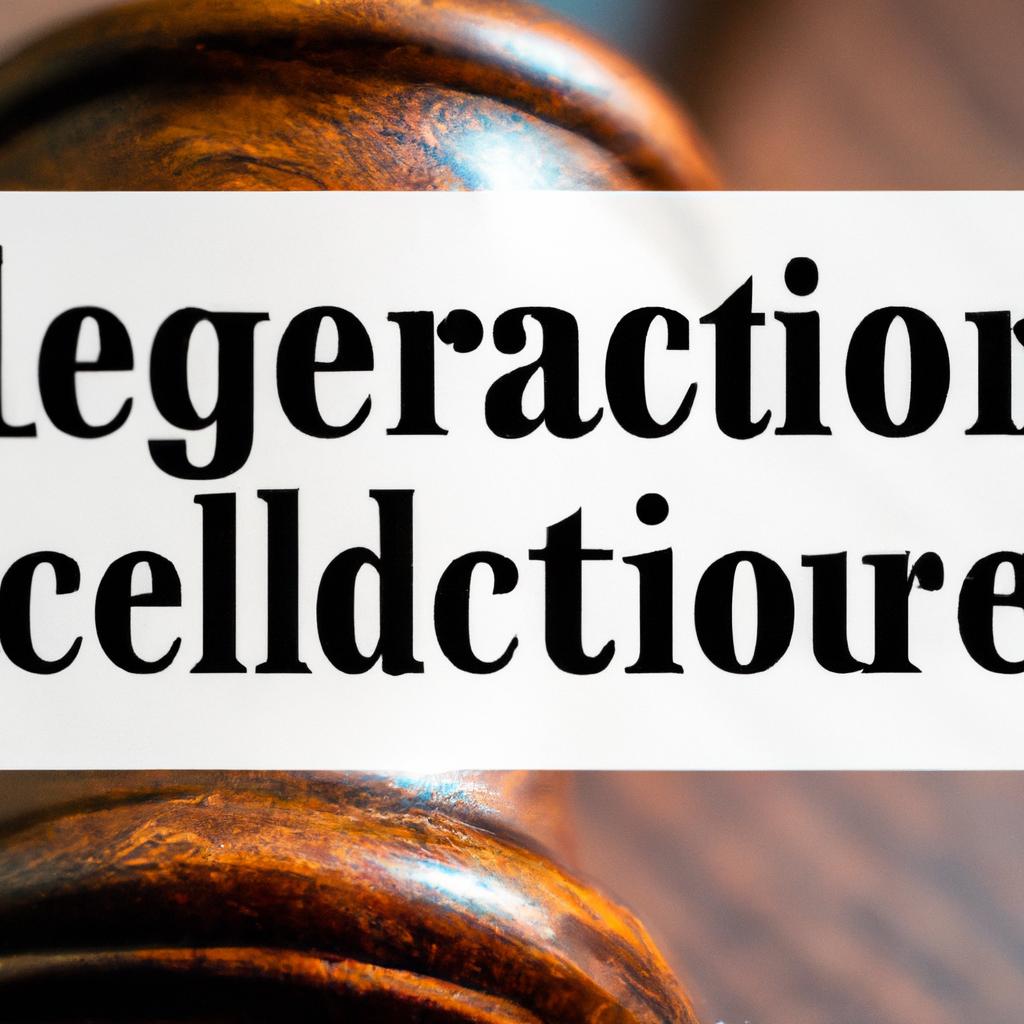Estate administration is a complex and delicate process where the executor plays a crucial role in ensuring the smooth probate of the deceased’s estate. However, there may be situations where doubts arise about the executor’s ability to fulfill their duties effectively, leading to the need for their removal. 
Grounds for Removing an Executor During Probate
In specific circumstances, an executor may need to be removed from their role during the probate process. This decision should not be taken lightly, as the executor is responsible for carrying out the deceased’s final wishes. However, some valid reasons for removing an executor may include:
- Conflict of Interest: If the executor’s personal or financial interests conflict with their duties to the estate.
- Failure to Perform Duties: If the executor is neglecting their responsibilities or not acting in the best interest of the estate.
- Undue Influence: If there are allegations of the executor exerting undue influence over the estate or beneficiaries.
It is vital to note that the decision to remove an executor is ultimately up to the court. If you believe that an executor should be removed, it is best to consult with an experienced probate attorney for guidance and support.

Legal Procedure for Removing an Executor
The process of removing an executor during the probate process is not an easy one and requires following specific legal procedures. Generally, this involves filing a petition with the probate court and providing adequate evidence to support the request.
Some common reasons for removing an executor may include:
- Failure to fulfill their duties
- Conflicts of interest
- Incapacity
- Improper handling of estate assets
If you believe that the executor of an estate is not acting in the best interests of the estate or beneficiaries, it is crucial to consult with an experienced estate planning attorney to discuss your options and determine the best course of action.
 Can the Executor be Removed During the Probate Process?
Can the Executor be Removed During the Probate Process?
The role of an executor is crucial in the probate process. An executor is responsible for managing the estate, paying off debts, and distributing assets according to the deceased’s will. However, in certain circumstances, the executor may not fulfill their duties properly, and the question may arise: can the executor be removed during the probate process?
The probate process can already be complex and emotionally charged for the family and loved ones of the deceased. Adding in the possibility of removing an executor can further complicate matters. In this article, we will explore the reasons for removing an executor, the process for doing so, and potential consequences.
Reasons for Removing an Executor
There are various reasons why someone may want to remove an executor during the probate process. The most common reasons include:
1. Conflict of Interest: An executor must act in the best interest of the estate and cannot have a personal interest in the distribution of assets. If there is evidence of a conflict of interest, such as the executor favoring certain beneficiaries over others, this may be grounds for removal.
2. Misconduct or Mismanagement of Assets: An executor has a legal duty to manage the estate assets properly. If there is evidence of the executor mishandling or mismanaging assets, such as using estate funds for personal gain, this could be a valid reason for removal.
3. Inadequate or Negligent Performance: The executor is responsible for timely and accurate management of the estate. In cases where the executor fails to fulfill their duties or is unable to perform their duties properly, they may be removed.
4. Failure to Communicate with Beneficiaries: Beneficiaries have the right to be informed about the status of the estate. If the executor fails to keep beneficiaries updated or there is a lack of communication, this may be a valid reason for removal.
5. Incapacity or Conflict of Interest: In some cases, the executor may become incapacitated or have a conflict of interest that prevents them from carrying out their duties. In such situations, they may be removed as an executor.
Process for Removing an Executor
Removing an executor is not a simple process and should not be taken lightly. The probate court has the power to remove an executor, but they will not do so without a valid reason. Here are the steps involved in the process:
1. File a Petition: The first step is to file a petition with the probate court detailing the reasons for removing the executor. This petition may need to be supported by evidence, such as financial records, communication records, or witness testimony.
2. Notify the Executor: Once the petition is filed, the executor must be notified of the request for their removal. This gives the executor a chance to respond to the allegations and defend their position.
3. Court Hearing: A court hearing will be scheduled, and both parties will have the opportunity to present their arguments. The court will review all evidence and make a decision based on what is in the best interest of the estate.
4. Appointment of a Replacement: If the court approves the removal of the executor, a replacement must be appointed. If the deceased named a successor executor in their will, they will be appointed. If not, the court will appoint a suitable person to fulfill the role.
Consequences of Removing an Executor
Removing an executor can have consequences for both the estate and the executor. In cases where the executor is removed for legitimate reasons, such as misconduct or mismanagement, they may face legal and financial consequences. This may also affect their eligibility to serve as an executor in the future.
For the estate, the removal of an executor can cause delays and additional expenses. The court may also appoint a professional executor, who will charge a fee for their services, which can deplete the estate’s assets.
Tips for a Smooth Probate Process
While it is impossible to guarantee a conflict-free probate process, there are steps you can take to minimize the potential for problems or disputes:
– Choose a suitable executor: When creating a will, it is essential to carefully consider who will serve as the executor. Choose someone who is organized, trustworthy, and able to perform their duties with impartiality.
– Communicate your wishes: Communication is key to avoiding misunderstandings or conflicts. Clearly communicate your intentions and expectations to your loved ones and the executor during your lifetime.
– Regularly review and update your will: It is important to review and update your will regularly, especially after major life events such as marriage, divorce, or the birth of a child. This can prevent disputes over your estate in the future.
In Conclusion
In rare cases, the removal of an executor during the probate process may be necessary. Whether it is due to a conflict of interest, misconduct, or other reasons, the probate court has the authority to remove an executor. If you are facing such a situation, it is best to seek legal advice to understand your options and navigate the process smoothly.
Remember, choosing a suitable executor, communicating clearly, and regularly reviewing your will can help prevent conflicts and disputes during the probate process. By proactively planning and taking the necessary steps, you can ensure a smooth probate process for your loved ones after you are gone.


